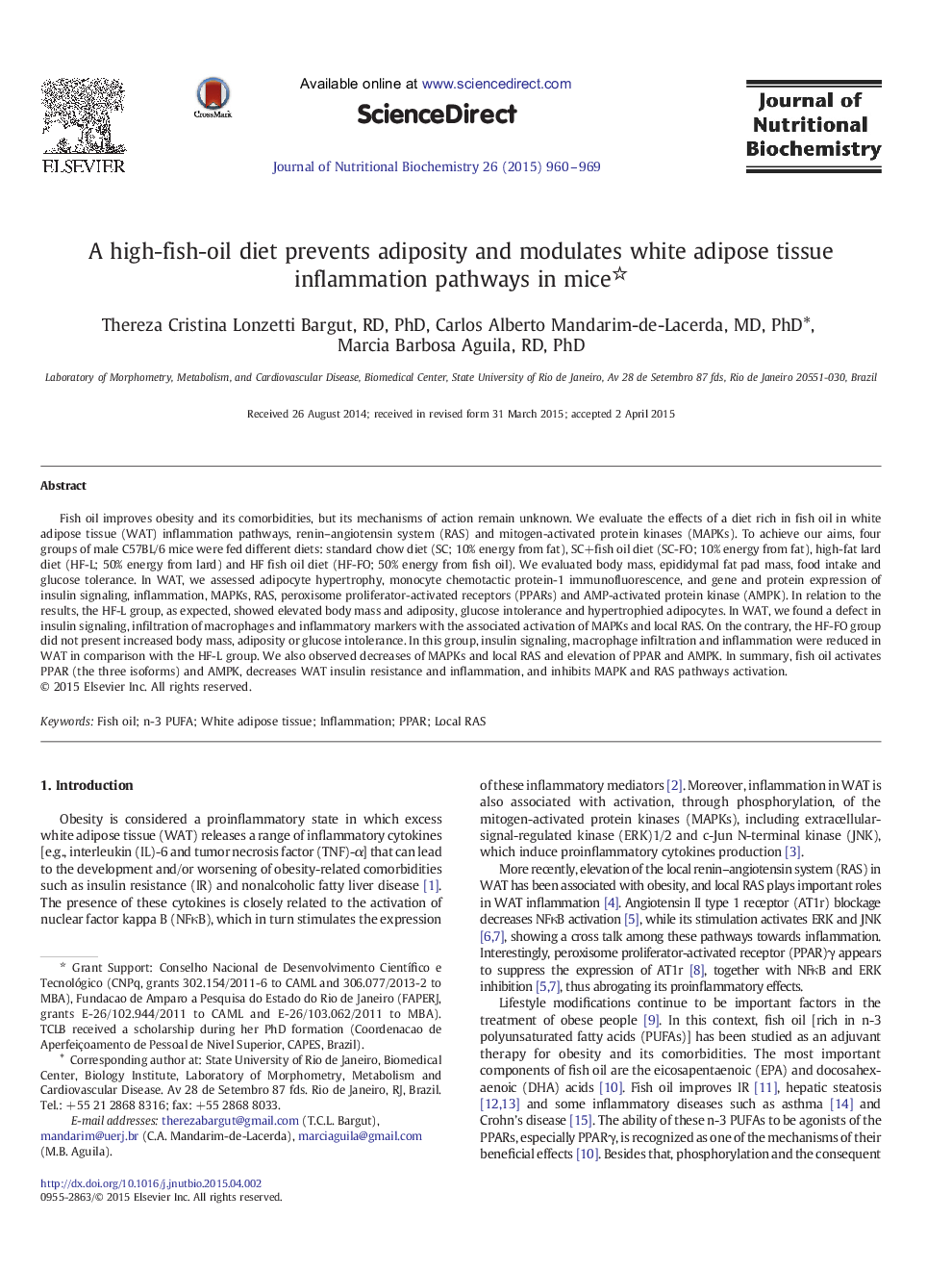| Article ID | Journal | Published Year | Pages | File Type |
|---|---|---|---|---|
| 1989629 | The Journal of Nutritional Biochemistry | 2015 | 10 Pages |
Fish oil improves obesity and its comorbidities, but its mechanisms of action remain unknown. We evaluate the effects of a diet rich in fish oil in white adipose tissue (WAT) inflammation pathways, renin–angiotensin system (RAS) and mitogen-activated protein kinases (MAPKs). To achieve our aims, four groups of male C57BL/6 mice were fed different diets: standard chow diet (SC; 10% energy from fat), SC+fish oil diet (SC-FO; 10% energy from fat), high-fat lard diet (HF-L; 50% energy from lard) and HF fish oil diet (HF-FO; 50% energy from fish oil). We evaluated body mass, epididymal fat pad mass, food intake and glucose tolerance. In WAT, we assessed adipocyte hypertrophy, monocyte chemotactic protein-1 immunofluorescence, and gene and protein expression of insulin signaling, inflammation, MAPKs, RAS, peroxisome proliferator-activated receptors (PPARs) and AMP-activated protein kinase (AMPK). In relation to the results, the HF-L group, as expected, showed elevated body mass and adiposity, glucose intolerance and hypertrophied adipocytes. In WAT, we found a defect in insulin signaling, infiltration of macrophages and inflammatory markers with the associated activation of MAPKs and local RAS. On the contrary, the HF-FO group did not present increased body mass, adiposity or glucose intolerance. In this group, insulin signaling, macrophage infiltration and inflammation were reduced in WAT in comparison with the HF-L group. We also observed decreases of MAPKs and local RAS and elevation of PPAR and AMPK. In summary, fish oil activates PPAR (the three isoforms) and AMPK, decreases WAT insulin resistance and inflammation, and inhibits MAPK and RAS pathways activation.
